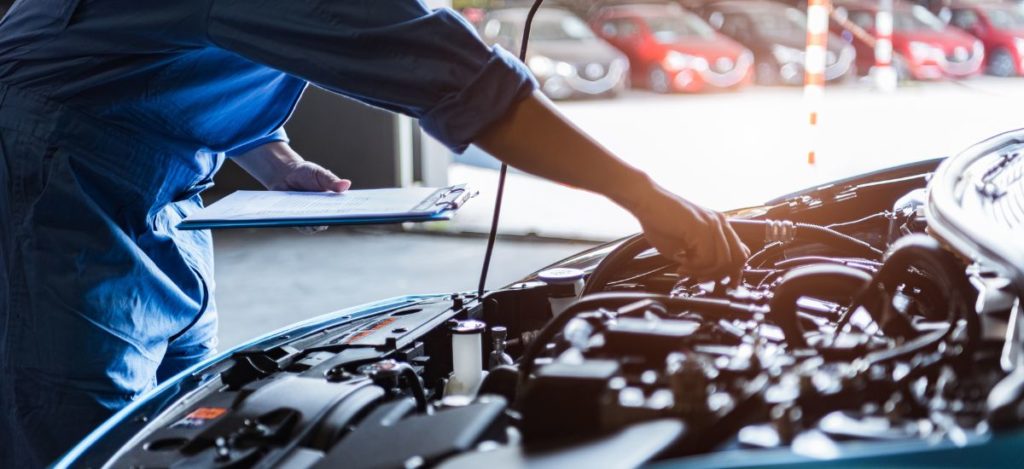Importance of Regular Brake Service: Ensuring Vehicle Safety
Your vehicle’s brakes are vital to ensuring your safety on the road. They are responsible for slowing down and stopping your car when needed. That is why ensuring they are functioning correctly at all times is crucial. Regular brake service not only enhances the safety of you and your passengers but also helps promote your vehicle’s longevity.
In this comprehensive guide by Dr. Brakes, we will discuss everything you need to know about brake service, including its importance, benefits, and risks associated with neglecting it. We will also cover how often you should get your brakes serviced and the signs of brake failure to watch out for. Keep reading to learn more about this essential aspect of vehicle maintenance.
The Vital Role of Brakes in Vehicle Safety
Your vehicle’s brakes are its primary safety feature. They are responsible for bringing your car to a stop quickly and effectively, preventing accidents and collisions. The braking system comprises various components, including brake pads, rotors, calipers, and brake fluid. These parts work in tandem to convert the kinetic energy of your moving vehicle into heat energy, slowing it down or bringing it to a complete stop.

Here’s why your brakes are so crucial for your safety:
- Control: Brakes allow you to control your vehicle’s speed and stop when necessary, ensuring you can respond to unexpected situations on the road.
- Stopping Distance: Properly functioning brakes reduce the distance your vehicle travels after you apply the brakes. This shorter stopping distance can differ between a close call and a severe accident.
- Stability: Brakes contribute to the stability of your vehicle. They help prevent skidding and losing control when you need to stop suddenly or in slippery conditions.
The critical components of your braking system include:
- Brake Pads: These friction materials press against the rotors to create the necessary friction for stopping your vehicle.
- Rotors: Also known as brake discs, the flat, round metal discs the brake pads clamp onto to create friction and stop your vehicle.
- Calipers hold the brake pads and squeeze them against the rotors when you press the brake pedal.
- Brake Fluid: This hydraulic fluid transfers the force from your foot on the brake pedal to the brake pads and calipers.
- Brake Pedal: The pedal you press with your foot to engage the braking system.
The Consequences of Neglecting Regular Brake Service
1. Premature Wear and Tear – One of the most significant consequences of neglecting regular brake service is premature wear and tear of essential components, such as brake pads and rotors. When your brake pads wear down too much, they can cause damage to the rotors, leading to expensive repairs. Regular maintenance can help you catch these issues early and prevent costly repairs in the long run.
2. Increased Risk of Accidents – Faulty brakes can lead to accidents, injuries, and even fatalities. When your brakes are not in good condition, your vehicle’s stopping distance increases, making it challenging to respond to sudden obstacles or stop in time during emergencies. Regular brake service ensures your brakes are in peak condition, reducing the risk of accidents.
3. Costly Repairs – Ignoring regular brake maintenance can lead to significant repairs. For example, if you neglect your brake pads for too long, they can wear down to the point where they damage the rotors. Replacing both the brake pads and rotors can be an expensive repair. However, you can catch issues early with scheduled brake service and lower repair costs.
Benefits of Regular Brake Service
Now that we’ve established the critical role of brakes and the signs that indicate they need attention let’s explore the numerous benefits of regular brake service:
- Enhanced Safety: The most apparent benefit is improved safety. Regular brake service ensures your brakes are in optimal condition, allowing you to stop quickly and safely in emergencies.
- Extended Brake Life: Routine maintenance helps prolong the lifespan of your braking system components, saving you money on frequent replacements.
- Cost Savings: Addressing minor brake issues early can prevent more extensive and expensive repairs.
- Improved Performance: Well-maintained brakes improve performance, reducing stopping distances and improving the overall driving experience.
By investing in regular brake service, you ensure your safety and enjoy long-term benefits beyond just stopping power.
How Often Should You Service Your Brakes?
The frequency of brake service can vary depending on your driving habits, the type of vehicle you own, and the manufacturer’s recommendations. However, as a general guideline:
- Regular Maintenance: It’s a good practice to inspect your brakes during regular maintenance visits, typically every six months or 6,000 to 12,000 miles, depending on your vehicle.
- Brake Pad Replacement: Brake pads typically need replacement every 25,000 to 70,000 miles, depending on the type of pads and your driving style.
- Brake Fluid: Brake fluid should be flushed and replaced every 2 to 3 years, as it can absorb moisture over time, compromising braking performance.

Signs It’s Time for Brake Service
In addition to following a regular maintenance schedule, it’s essential to be vigilant and watch for signs that your brakes may need attention. Some common indicators that it’s time for brake service include:
1. Strange Noises – If you hear squeaking, squealing, grinding, or any other unusual noises when you apply the brakes, it’s a clear sign that something is amiss. These noises often indicate worn brake pads or other issues that require immediate attention.
2. Reduced Braking Performance – These are signs of reduced braking performance if your vehicle takes longer to come to a complete stop or if the brake pedal feels soft or spongy when pressed. It’s crucial to address these issues promptly to maintain your safety on the road.
4. Vibrations or Pulling –If your vehicle vibrates when you brake or pull to one side, it could indicate uneven brake pad wear or other issues with your braking system. These symptoms can affect your control over the vehicle and should be addressed promptly.
Drive Safely with Regular Brake Service
In conclusion, regular brake service is not just a routine chore but a crucial aspect of vehicle maintenance that directly impacts your safety, savings, and overall driving experience. Whether you drive a high-performance Porsche or a family-friendly Hyundai SUV, keeping your braking system in good working order cannot be overstated.
By addressing brake issues promptly, you can avoid costly repairs, improve your vehicle’s fuel efficiency, and enjoy a smoother, safer ride. Remember that regular brake service is an investment in your vehicle’s longevity and your peace of mind on the road. So, the next time you hear those noisy brakes or sense reduced responsiveness in your brake pedal, don’t hesitate—to schedule a regular brake service.


